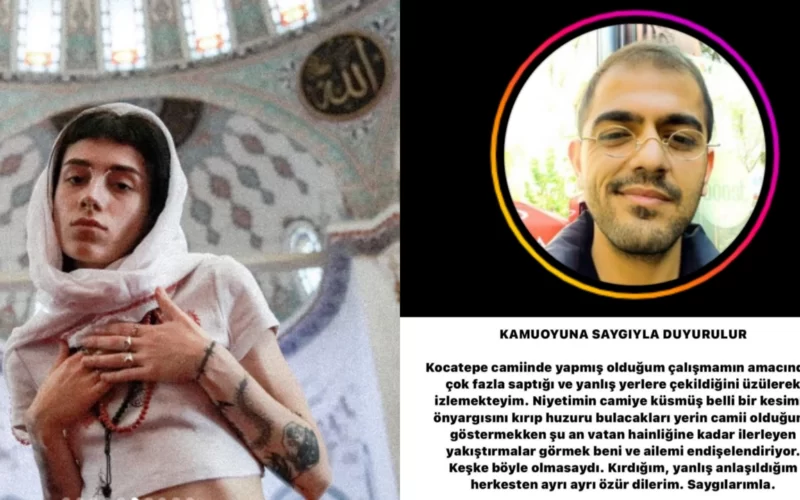ANKARA – In a recent development, the Ankara Chief Public Prosecutor’s Office has launched an investigation surrounding photographs taken at the Kocatepe Mosque in Ankara.
The images, featuring model Ezgi Cebeci and captured by photographer Bilal Gabra Kısa, have sparked controversy and allegations of insulting religious values.
Both Kısa and Cebeci have been detained as part of the investigation under charges outlined in Article 216 of the Turkish Penal Code (TCK), which pertains to the alleged denigration of religious values upheld by a certain segment of society.
The root of the controversy lies in the perception of the photos as disrespectful and inappropriate, particularly concerning the attire worn by the model. Social media played a pivotal role in amplifying these sentiments, as netizens criticized the photos for purportedly violating Islamic principles regarding clothing and modesty.
Islamic tradition dictates that those visiting mosques should don loose and unobtrusive clothing that conceals the body’s contours. Women, in particular, often wear headscarves as a symbol of modesty.
Photographer Bilal Gabra Kısa shared the contentious photos on his Instagram account along with a thought-provoking English caption. He described the photos as a fusion of modern and traditional elements, emphasizing the harmonious blend of contrasting aspects.
Kısa’s description further expounded on the visual symbolism within the photos, highlighting the juxtaposition of modernity and spirituality.
However, the photos garnered significant backlash, leading Kısa to eventually delete them. In a statement, he explained that he had intended to bridge the gap between those who feel distant from mosques and the potential solace they can find within.
The outrage, however, extended to an extent where Kısa faced personal attacks and accusations of treachery. He expressed concern over the hostile reactions and issued an apology for any distress caused.
This incident is situated within the larger framework of Turkey’s political and social environment. The nation, currently governed by the Islamic-rooted Justice and Development Party (AKP), has witnessed a growing number of cases where individuals are brought to court on charges of purportedly disrespecting religious values.
A notable instance occurred last year involving the renowned Turkish pop singer Sezen Aksu. Legal proceedings were initiated due to the lyrics in one of her songs composed in 2017. These lyrics were perceived as containing a disrespectful implication toward religious figures.
As investigations unfold, the incident underscores the complex interplay between artistic expression, religious beliefs, and societal sensitivities in Turkey. The outcome of this case will likely fuel further discussions about the boundaries of creative freedom and religious respect.




 WhatsApp Channel
WhatsApp Channel
 Instagram
Instagram
 Facebook
Facebook
 X (Twitter)
X (Twitter)